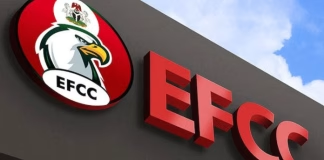As part of its five-year Agricultural Investment Program (IP) in Africa, the Export Trading Group (ETG) has secured a US $100-million corporate loan from the African Development Bank (AfDB) to finance agricultural projects across African Countries, Nigeria inclusive.
The AfDB Board of Directors had approved the project on July 13, 2016.
The Bank reports that Africa spent over $35 billion on food importation in the year 2015 alone.
AfDB also projected that net food imports are expected to rise to more than US $110 billion by 2025 if unchecked.
In bid to help check this food insecurity challenge, the ETG’s programme plans to generate significant development outcomes at local, national and regional levels, notably: (i) contribution to food security; (ii) contribution to food import substitution, job creation, fiscal revenues; (ii) contribution to smallholders access to inputs (seeds and fertilizers), mechanization and international markets thereby ensuring significant revenues to farmers; (iii) integration of poorer sections of the population into a sustainable process of economic growth and development; (vi) enhance efficiency of value chains for different crops by increasing the infrastructure base and capacity for value addition; (v) regional integration by developing sustainable platforms to supply local and regional markets and aiming to export markets integration; (vi) contribution to industrialization with new processing plants.
The investment program will consist of: (i) Fertilizer projects in Kenya and Zambia; (ii) Processing Plants (rice, cashew, maize, sesame, cotton, biscuit) in Kenya, Tanzania, Zambia, Mozambique, Togo, Ethiopia, Benin, Zimbabwe, Nigeria and Uganda; (iii) Multi-commodity warehouses in Burkina Faso, Malawi, Zambia, Zimbabwe, Niger, Benin, Nigeria, Zambia and Ethiopia; and (iv) Silos in Zimbabwe.
Implementation of the programme will also encourage employment for youths and women across African Countries, as well as improve access to regional and global markets.














